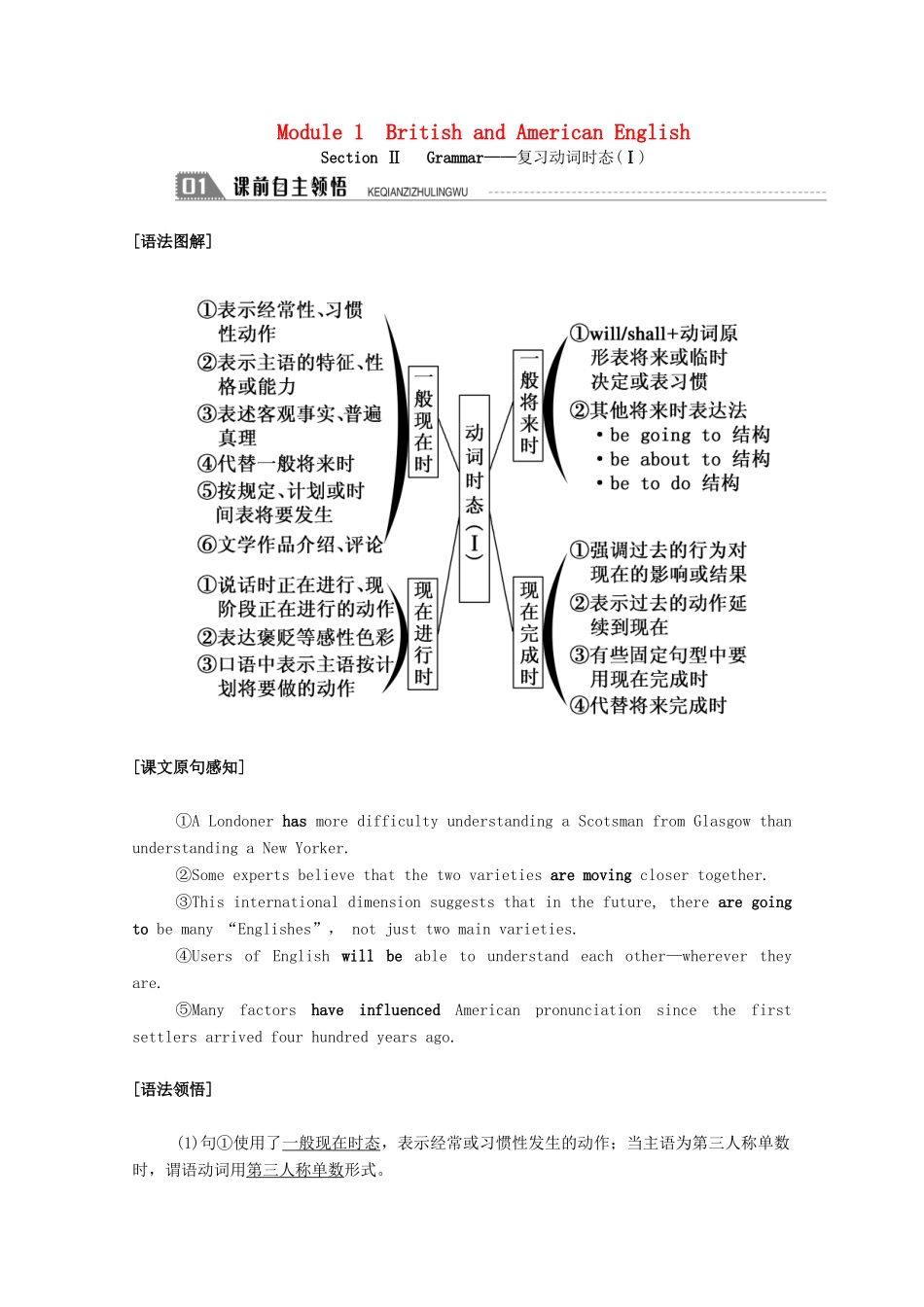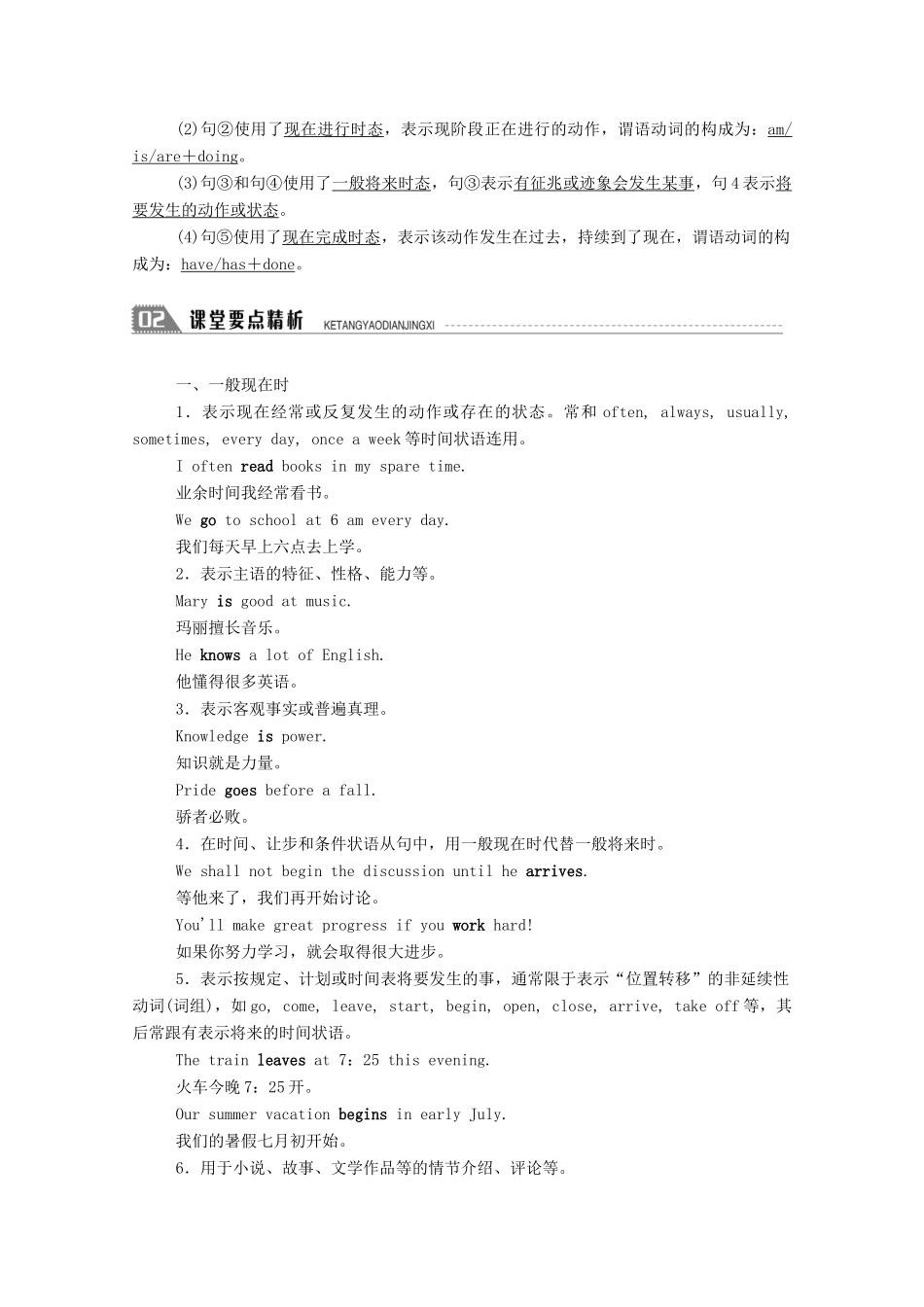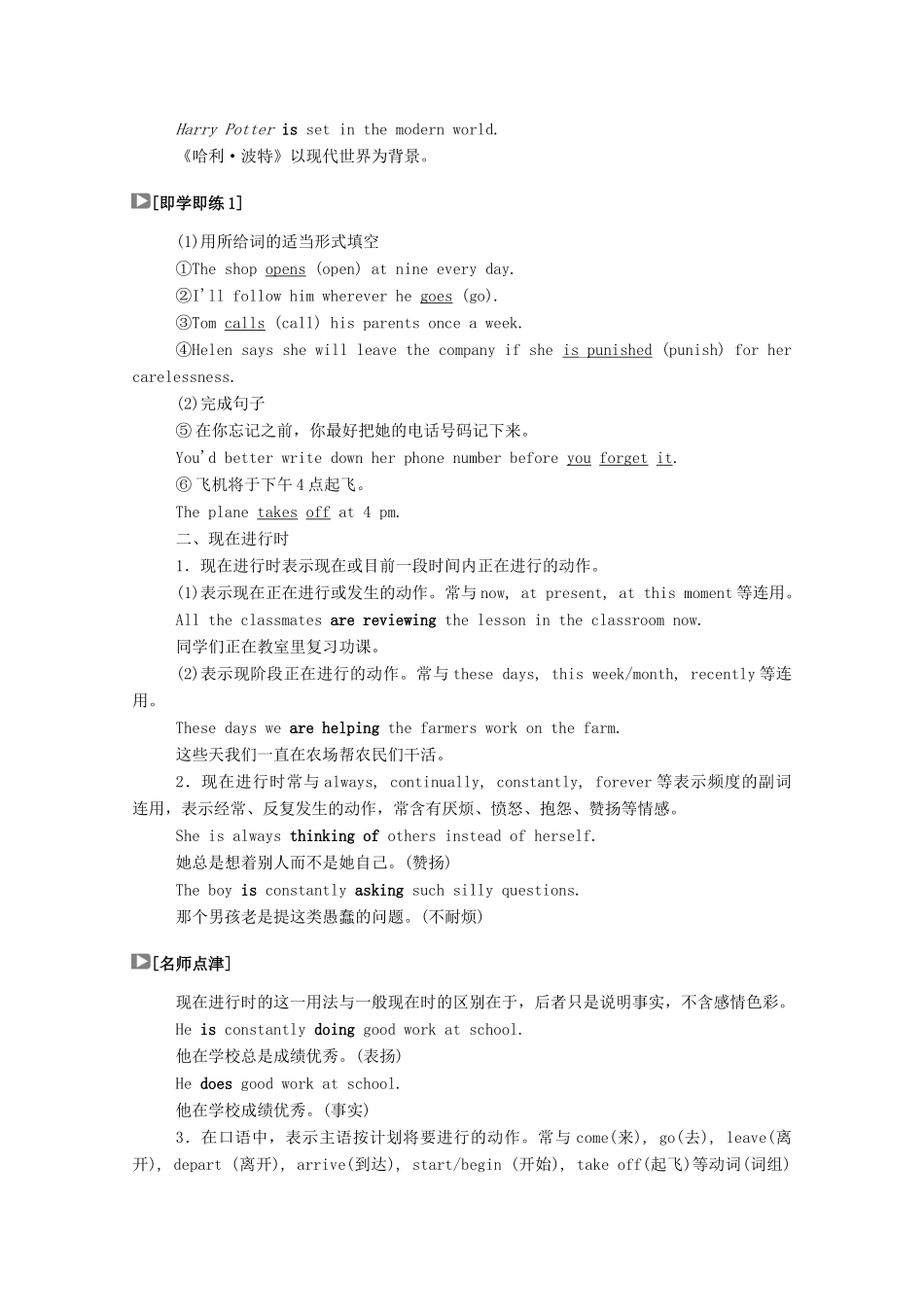Module 1 British and American English Section Ⅱ Grammar——复习动词时态(Ⅰ)[语法图解][课文原句感知]①A Londoner has more difficulty understanding a Scotsman from Glasgow than understanding a New Yorker.②Some experts believe that the two varieties are moving closer together.③This international dimension suggests that in the future, there are going to be many “Englishes”, not just two main varieties.④Users of English will be able to understand each other—wherever they are.⑤Many factors have influenced American pronunciation since the first settlers arrived four hundred years ago.[语法领悟](1)句①使用了一般现在时态,表示经常或习惯性发生的动作;当主语为第三人称单数时,谓语动词用第三人称单数形式。(2)句②使用了现在进行时态,表示现阶段正在进行的动作,谓语动词的构成为:am/is/are + doing 。(3)句③和句④使用了一般将来时态,句③表示有征兆或迹象会发生某事,句 4 表示将要发生的动作或状态。(4)句⑤使用了现在完成时态,表示该动作发生在过去,持续到了现在,谓语动词的构成为:have/has + done 。一、一般现在时1.表示现在经常或反复发生的动作或存在的状态。常和 often, always, usually, sometimes, every day, once a week 等时间状语连用。I often read books in my spare time.业余时间我经常看书。We go to school at 6 am every day.我们每天早上六点去上学。2.表示主语的特征、性格、能力等。Mary is good at music.玛丽擅长音乐。He knows a lot of English.他懂得很多英语。3.表示客观事实或普遍真理。Knowledge is power.知识就是力量。Pride goes before a fall.骄者必败。4.在时间、让步和条件状语从句中,用一般现在时代替一般将来时。We shall not begin the discussion until he arrives.等他来了,我们再开始讨论。You'll make great progress if you work hard!如果你努力学习,就会取得很大进步。5.表示按规定、计划或时间表将要发生的事,通常限于表示“位置转移”的非延续性动词(词组),如 go, come, leave, start, begin, open, close, arrive, take off 等,其后常跟有表示将来的...


